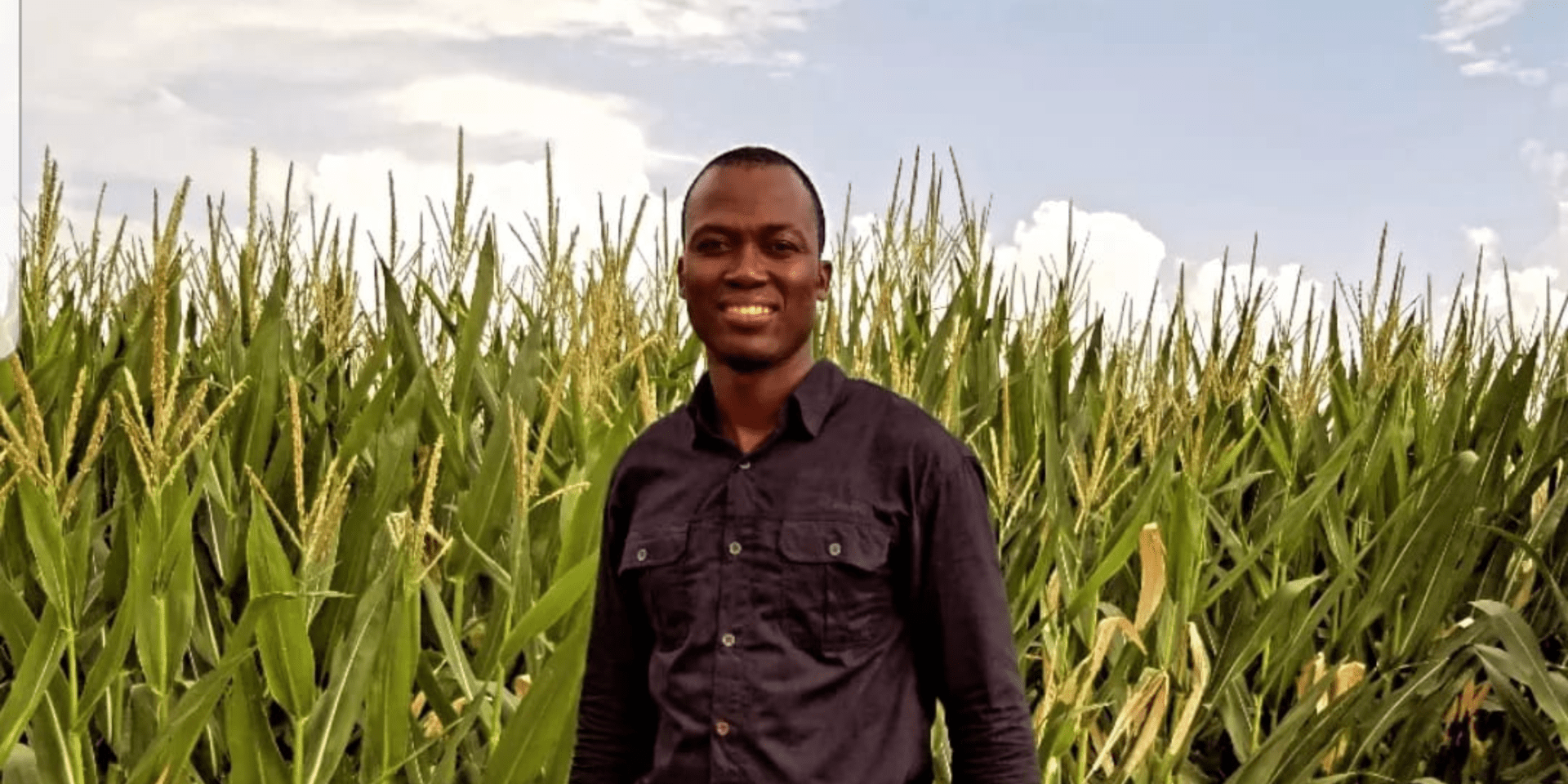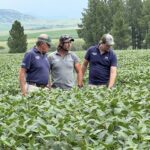By Aurelia Mbokazi-Kashe
Alfred Moloto is part of a new generation shaping Africa’s agricultural future. An agricultural scientist and development professional, he has over 12 years of national and international experience in food systems, sustainable agriculture, and rural development. He has worked with the African Union Commission, UNFAO, and other regional partners to strengthen agricultural value chains, promote climate-smart practices, and build the capacity of smallholder farmers across Africa.
A registered scientist with SACNASP, Moloto holds a Master’s degree in Agricultural Science focusing on food loss and waste, and is currently pursuing a PhD in Sustainable Food Systems and Development. His work centres on transforming Africa’s agriculture through innovation, inclusivity, and sustainability.

You have extensive experience coordinating agricultural projects across Africa. Can you share specific ways in which your work directly assists farmers on the ground, particularly emerging and smallholder farmers?
My goal has always been to empower farmers with the knowledge, tools, and networks to improve productivity and incomes sustainably. Over the past decade, I’ve focused on translating agricultural policy and research into real impact for smallholder and emerging farmers.
Across Africa, I’ve coordinated programmes training cooperatives in climate-smart production, postharvest handling, and market access, while helping establish demonstration plots and field schools that connect farmers to buyers, input suppliers, and practical, sustainable farming solutions.

How do you see the future of farming evolving on the continent over the next 10 to 15 years, especially in terms of technology adoption and climate-smart practices?
I see a future where farmers use digital platforms to access weather forecasts, market prices, and agronomic advice in real time. Technology will drive precision irrigation, soil testing, and drone-based crop monitoring, powered by renewable energy for cold storage and processing.
Climate-smart practices will become the norm, but success also depends on inclusive finance, youth participation, and enabling policies. Africa’s farmers are already adapting — they now need the right ecosystem to truly thrive.
What key interventions do you believe are most urgent to improve food security in Africa, and how can governments, the private sector, and development organisations work together to implement them?
Food security in Africa depends on three things: productivity, resilience, and market access. We must invest in affordable inputs, irrigation, and soil health restoration to boost yields sustainably. Reducing food loss, especially at postharvest and market levels, is another urgent priority.
Governments can create the right environment by improving infrastructure and providing incentives, while the private sector and development partners bring finance, innovation, and technical expertise.
Collaboration is key; when each actor plays its part, smallholder farmers can move from surviving to thriving, ensuring Africa not only feeds itself but becomes a global supplier of nutritious food.

From your experience, what are emerging farmers doing right, and what common mistakes do they make that could be avoided?
Many emerging farmers are doing incredible work; they’re experimenting with new crops, adding value through processing, and embracing digital tools to reach markets. They are resilient and willing to learn.
However, common pitfalls include poor record-keeping, limited market research, and underestimating production costs. Some also neglect soil health and postharvest management, which affects profitability. These mistakes are avoidable with better mentorship, access to business training, and structured support systems that link production with markets and finance.
In your opinion, what policy-level changes are needed to increase food production and empower black, African farmers to thrive commercially and sustainably?
We need policies that combine equity with enterprise. This means improving land tenure security, expanding access to affordable credit and insurance, and
incentivising agribusiness partnerships that integrate black farmers into value chains.
Public procurement policies can prioritise local producers, while infrastructure investments, storage, and irrigation create lasting impact. Extension services must also evolve, combining traditional outreach with digital advisory. Above all, policy implementation must be consistent and accompanied by strong monitoring and accountability.

Having worked with the UNFAO, African Union Commission, and UN agencies, what lessons have you learned from regional collaborations that could benefit farmers at a national or local level?
Working with the African Union Commission, UNFAO, and other UN agencies has taught me the value of collaboration beyond borders. Regional projects allow us to share best practices, harmonise standards.
One clear lesson is that lasting impact happens when regional strategies are localised, when national and community institutions are empowered to lead implementation. Collaboration also builds trust and consistency, ensuring farmers benefit from innovations and policies that have been tested across the continent.
What inspired you to enter the agricultural development space, and how did your early experiences shape your approach to supporting farmers and agri-value chain development?
My journey into agriculture began with a deep appreciation of how farming sustains families and communities. Growing up, I witnessed how small improvements in production and storage could change livelihoods.
That experience inspired me to pursue agricultural science and later focus on food systems and waste reduction. I realised that agriculture isn’t just about growing food it’s about dignity, opportunity, and sustainability.
My early field experiences taught me that meaningful change comes when farmers are part of the solution, not just recipients of aid.

What does a typical day in your life look like as someone managing complex farm pack-houses?
My day begins with a walk through the facility to ensure hygiene and safety standards are met before production starts.
As a Food Quality Control Manager, I oversee every step from raw material inspection to final packaging, ensuring compliance with food safety and quality regulations. Mornings focus on quality checks, while afternoons are spent solving challenges, improving processes, and training staff.
Each day offers a chance to enhance efficiency, reduce waste, and protect product integrity — ensuring every item that leaves our facility is safe, fresh, and trustworthy.

Do you see yourself becoming a farmer in the near future, or are there other personal ambitions within agriculture that you hope to achieve?
While I’m passionate about agriculture, I also see myself establishing a demonstration farm that integrates research, training, and innovation for smallholder empowerment.
My broader ambition is to contribute to building Africa’s capacity for sustainable food systems through knowledge, policy influence, and practical interventions. Completing my PhD will further strengthen my ability to bridge science, policy, and community action in ways that deliver real change.
What advice would you give young Africans who aspire to enter agriculture, whether as farmers, policymakers, or agri-entrepreneurs?
Agriculture is not the sector of the past it’s the sector of the future. My advice to young Africans is simple: start small, think big, and stay consistent. Learn the
technical and business sides of farming, embrace digital tools, and connect with
mentors and networks.
The opportunities span production, processing, logistics, finance, and technology. Don’t wait for perfect conditions; innovation often starts with solving problems in your own community. With creativity and resilience, young Africans can transform the continent’s food landscape.




